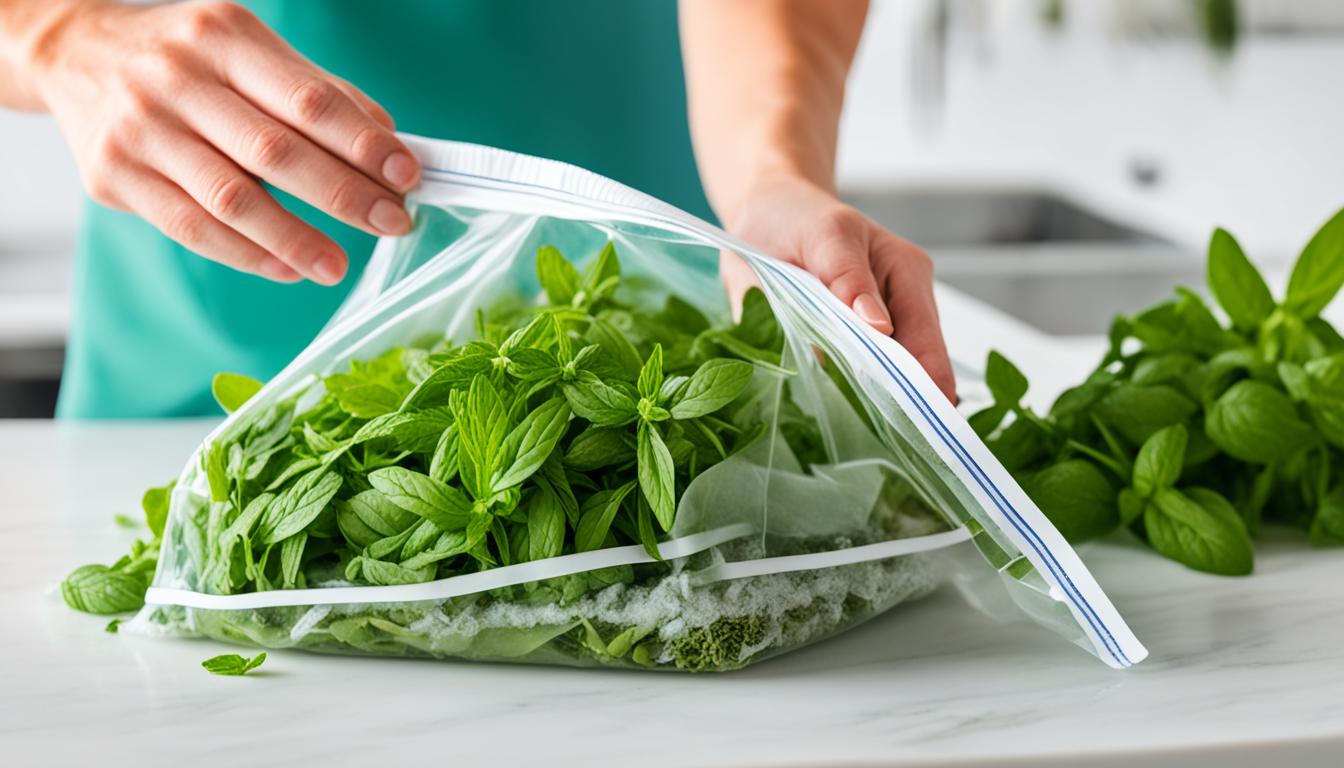Are you tired of wasting fresh herbs? Do you wish you could enjoy their flavors all year round? We have the solution for you! Discover the secrets of freezing herbs for long-term storage and unlock a world of culinary possibilities. Say goodbye to wilting herbs and hello to vibrant flavors, anytime you desire.
When it comes to preserving the flavors of fresh herbs for an extended period, freezing is a great option. But is it really the best method? Can frozen herbs retain their flavors? And which freezing techniques yield the best results? Don’t miss out on this exploration into the art of freezing herbs and discover the secrets of preserving their flavorful essence.
The Best Herbs for Freezing
Not all herbs freeze well, so it’s important to select the right ones for freezing. Some herbs that freeze exceptionally well include rosemary, thyme, basil, parsley, cilantro, dill, and mint. These herbs tend to retain their flavors and textures when frozen. Delicate herbs like chives and tarragon may not freeze as successfully.
To prepare herbs for freezing, wash them thoroughly and pat them dry to remove any dirt or moisture. Remove the leaves from the stems, as the stems can become tough and leathery when frozen. The leaves can be chopped or left whole, depending on personal preference.
Freezing fresh herbs is a fantastic way to enjoy their vibrant flavors even when they are out of season. Whether you want to add them directly to cooked dishes, create herb-infused oils or butters, or use them for other culinary adventures, freezing herbs can help preserve their goodness for an extended period.
Other Herb Preservation Methods
Freezing herbs is a popular method for long-term storage, but it’s not the only option. There are other herb preservation methods that you can explore based on your preferences and available resources.
One common method is to dry herbs using an oven, food dehydrator, or air-drying. Each method has its own recommended temperature and drying time, but the goal is to dry the herbs until the leaves crumble and the stems break easily. Once dried, store the herbs in airtight containers in a cool, dry, and dark area.
Vine drying is another option for certain herbs like coriander, dill, caraway, mustard, and fennel. Simply leave the herbs on the vine until they are dry and shriveled, then harvest and complete the drying process indoors. Remember to pasteurize dried herbs by freezing them or heating them in the oven, eliminating any insects or eggs.
By exploring these different herb preservation methods, you can find the one that best suits your needs and preferences. Whether freezing herbs in ice cube trays, drying them, or using other techniques, storing herbs for later use will ensure you have flavorful ingredients at your fingertips all year round.
